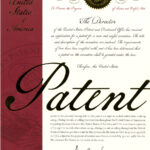
Resources for Independent Inventors
Navigating the world of patents can be daunting, especially for independent inventors. Fortunately, there are a wealth of patent resources available to help make the process smoother. Whether you’re looking for guidance on filing a provisional patent, conducting a patent search, or finding legal assistance, this guide will introduce you to some of the most reliable tools and communities to support your journey.
1. USPTO Website (uspto.gov)
The United States Patent and Trademark Office (USPTO) offers a comprehensive set of resources tailored specifically for inventors, including:
- Patent Basics: Step-by-step guides on how to file a patent.
- Pro Bono Services: A directory of legal professionals who offer free assistance.
- Inventor Info Chat: A forum for getting answers to common patent questions.
- Patent Practitioner Database: A list of registered patent attorneys and agents.
- Patent Licensing Opportunities: A section in the Official Gazette where inventors can list their patents for sale or licensing opportunities (for a small fee).
If you’re just starting out, USPTO.gov should be your first stop to get familiar with the patent process.
2. Patent Search Tools
Before filing for a patent, it’s critical to conduct a thorough search to ensure your invention is novel and non-obvious. Here are some of the best free search tools available:
- Google Patents: User-friendly and great for quick searches.
- PQ AI: Uses artificial intelligence to refine and automate patent searches, making it an excellent tool for beginners.
- Patentscope (WIPO): Ideal for searching international patents.
- EPO (European Patent Office): Focuses on European patents.
- Your patent attorney- A qualified patent attorney can help you interpret search results- is your invention patentable.
A well-executed patent search can help you understand your competition and refine your invention before filing.
3. Inventor Groups & Communities
Inventing can be a lonely process, but connecting with other inventors can be incredibly valuable. Many cities across the U.S. have local inventor groups and clubs that provide mentorship, networking opportunities, and guest speakers.
For example:
- Alamo Inventors Club
- Kansas City Inventors Group
- Many groups meet regularly, providing educational sessions and Q&A opportunities.
- Some even offer informal networking events where inventors discuss their projects over coffee or dinner.
These communities are excellent for learning from others who have been through the process and can provide firsthand insights.
4. Pro Bono Legal Assistance
If you need help navigating the patent process but can’t afford legal fees, consider pro bono assistance from law schools and nonprofits.
- Many law schools run pro bono clinics where students, under the supervision of licensed attorneys, help independent inventors with their patent applications.
- Organizations listed on the USPTO website connect inventors with attorneys who offer free or low-cost legal services.
These programs typically have income requirements, so be sure to check eligibility criteria before applying.
5. Educational Resources
Knowledge is power, and educating yourself on the patenting and licensing process can save you time and money. A highly recommended book is:
- “One Simple Idea” by Stephen Key – A must-read for anyone interested in licensing their invention. The book covers real-world patent strategies and practical advice for getting your invention to market.
- Leveraging Inspiration: The Inspired Patent Podcast
Don’t Do It Alone
Independent inventors don’t have to navigate the patent process alone. By leveraging the right patent resources, tools, and communities, you can streamline your patent journey, avoid costly mistakes, and increase your chances of success. Whether you’re searching for patents, networking with inventors, or seeking legal assistance, the tools mentioned in this article can serve as your roadmap.
For more tips and expert insights, be sure to follow our blog and podcast. Happy inventing!


